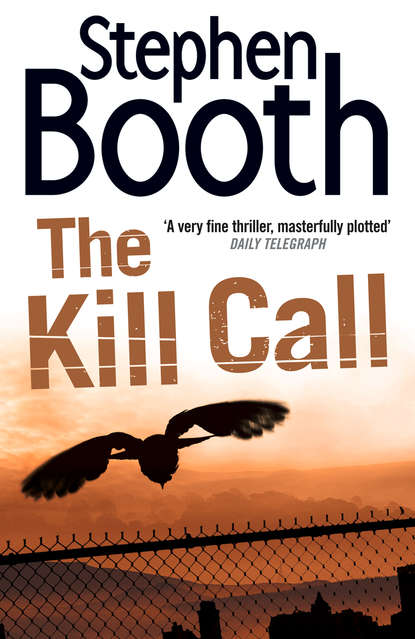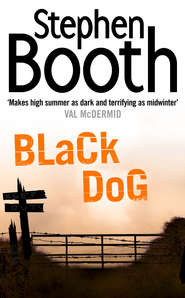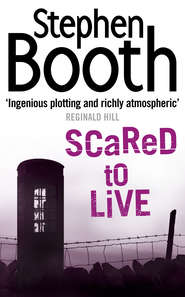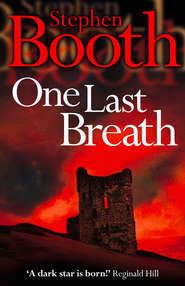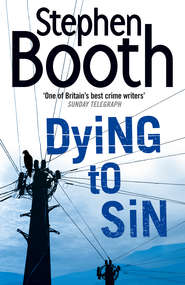По всем вопросам обращайтесь на: info@litportal.ru
(©) 2003-2024.
✖
The Kill Call
Автор
Год написания книги
2019
Настройки чтения
Размер шрифта
Высота строк
Поля
Fry didn’t answer. One of the other downsides of policing a rural area was the lack of CCTV cameras. One of the many downsides. If she’d still been working back in Birmingham, or any other city, they’d have caught the victim’s car on half a dozen cameras as it passed from A to B, registered his number plate at a car-park entry barrier, and probably got a nice, clear shot of him walking along the pavement to wherever he’d been going. And then they could have scanned the CCTV footage for possible suspects, grabbed images of a face from the screen for identification.
But out here? Unless their victim had been idiot enough to go more than ten miles an hour over the limit on a stretch of the A6 where the speed cameras were actually operating, his movements might as well have been invisible.
‘If someone else took his car,’ said Murfin, ‘they might have dumped it and torched it by now.’
‘If they have, it’ll turn up somewhere.’
Murfin was wrestling with a decrepit Ordnance Survey map. Normally, he swore by his sat-nav, and never took driving instructions from anyone but TomTom, or his wife. That wasn’t much use when you’d left your car two fields away, though Fry knew that Wayne Abbott had a GPS device to map the location of a crime scene precisely.
‘We’re somewhere about here,’ said Murfin, stabbing a finger at a square of damp plastic. ‘Longstone Moor that way, the nearest village is Birchlow, over there. A few more villages across the valley. And a load of quarries all around us, some of them still in use. There’s a big mill down in that dip. Not textiles, it processes stone from the quarries.’
‘A tricky area, then?’
Murfin shrugged. ‘The lads are checking any pull-ins on the A623 or this back road over here between the villages. But, as you can see, there are quite a few unmade lanes and farm tracks in this area. So it could take a while, unless some helpful punter phones in.’
‘The victim’s shoes are muddy, so he could have walked some distance, at least.’
‘Eyam at the furthest, I’d say,’ suggested Murfin, pronouncing the ‘Eem’ correctly. ‘There’s a car park that tourists use, near the museum. I’ve asked for a check on any that have outstayed their parking tickets. He’s been dead for an hour or two, right?’
‘Three hours, according to the ME.’
‘He might be due for a fine, then. Poor bugger. That’s the last thing he needs.’
‘That’s not really funny, Gavin.’
‘Oh, I thought those were tears of unrestrained hilarity running down your face. Maybe it’s just the rain, after all.’
The officer nearby was listening to a call on his radio, and became suddenly alert. Fry looked at him expectantly.
‘What’s the news?’
‘Not good, Sergeant. The control room says a 999 call was received about twenty minutes ago.’ The officer pointed towards a distant stone building. ‘A unit has been despatched to the old agricultural research centre, about half a mile away in that direction. They thought we’d like to know. There’s been a report of another corpse.’
Fry cursed quietly, squinting against the downpour.
‘I’ve heard about showers of frogs,’ she said. ‘But I’ve never heard of it raining bodies.’
3 (#ud3157305-6884-5400-ad2c-ccfd653500d5)
Detective Constable Ben Cooper ran his hand down the glass of the passenger window, clearing a path through the condensation. But it was wetter outside than inside the car, and all he saw was a blurred reflection of himself – a pair of dark eyes, fragmented against the streets of Edendale. Automatically, he swept back the stray lock of hair that fell across his forehead, before focusing beyond his own image to the side door of the house across the street.
‘Someone home, I think.’
‘There’d better be. The boss won’t be happy if it’s all a wasted effort.’
Despite the rain, Cooper would always prefer to be outside, rather than shut up in the office with a mountain of paperwork. That was why he’d managed to talk himself into this assignment, though he hadn’t anticipated finding himself trapped inside a car instead, with the atmosphere growing stale and his breath steaming the windows.
‘We’ll get into the property, whatever,’ he said.
‘We need an arrest, though.’
‘Right.’
He could feel an itch developing under his stab-proof vest. Right underneath, where he had no chance of reaching it without taking the thing off completely. No amount of twisting his body and squeezing a hand into the gap would do the trick. That was the trouble with sitting doing nothing, waiting for the action to start. You began to develop unreachable itches. You began to think about things.
His colleagues were fidgeting and grumbling beside him in the car, trying to reach itches of their own, or ease the cramp in their legs. They might have been better waiting outside in the rain, except that Kevlar was said to disintegrate when it got wet. Cooper didn’t know whether that was true, or just a canteen-culture myth that had survived the death of the canteen. He had no urge to be the first one to try it out, though. An itch was better than a knife in the guts.
‘What are we waiting for now? Who’s running this show, anyway?’
‘Laurel and Hardy, by the look of that entry team.’
‘Jesus. They’ve got the Michelin Man on ram.’
Cooper watched four officers in overalls and riot helmets exiting their unmarked van and approaching the house. Well, no one looked good in a stab vest; Cooper had an uncomfortable feeling that he had put on a few pounds in the wrong places himself. Despite the muscle he’d been building up in the gym, too much good food had staged a kind of counterattack and his waist was now pushing uncomfortably against the inside of the vest. That would be Liz’s fault, he reckoned. She wasn’t a bad cook, and every time she made a meal for him, he felt obliged to return the favour with a visit to a decent restaurant. What a fatal spiral. At this rate, he’d be the Michelin Man himself before too long.
He watched the bulky figure of the entry team officer swing back the ram. The big red key, they called it. It opened any door, if you used it right.
A couple of liveried Traffic cars moved into position to close off the road. Cooper had done his five years in uniform before he joined CID, but he’d never been tempted by Traffic. Funny, when it was the job that got you out and about the most, instead of wearing out a chair in the CID room. Even without his twelve years in the force, he had more local knowledge than the rest of his shift put together. Well … one day, maybe, when the paperwork finally wore down his resistance.
‘Here we go, lads.’
And then suddenly everything was happening at once. Cooper threw open the door and jumped out of the car. Immediately, he was surrounded by noise – the thump of boots on the pavement, an Alsatian barking furiously, a radio crackling with messages, and the first shouts of ‘police’ as the entry team burst into the hallway of the house. As he ran, he could hear his own breathing, feel his heart pounding in his chest. This was the moment many police officers lived for – the sudden rush of adrenalin, the surge of excitement, the blood pumping through the veins at the scent of danger. It was like a high for some of them, a feeling they couldn’t get enough of. Dangerous, in its own way.
Almost before he was inside the door, he caught the distinctive odour. An officer at the top of the stairs signalled a find. So intelligence had been on the mark, after all. Upstairs, a bedroom would have been converted into a small-scale cannabis factory, with its windows boarded up, an air vent protruding from the attic, possibly hundreds of plants under cultivation, releasing that unmistakable smell. There was no way of disguising all the tell-tale signs in a suburban street like this one. How did they think they could fool anyone? Well, he supposed they relied on a code of silence, the closing of ranks against the authorities. No snitching.
And that was why more than sixty per cent of cannabis sold in the UK was home-grown now. Latest bulletins showed an average of three factories a day raided around the country. The owners of this house would appear at magistrates’ court tomorrow charged with cannabis cultivation, and would probably be remanded in custody.
Cooper entered the living room, where two male suspects were already being handcuffed by the entry team. Somewhere in another room, a female suspect was screaming – a hysterical, high-pitched noise that penetrated the walls and rattled the windows. He helped the sergeant in charge of the operation to search one of the men, removing keys and a mobile phone from a pocket. Vital seizures, these – the keys would lead to a vehicle containing more evidence, the phone would provide contacts for the enquiry teams to follow up.
‘Can you escort a prisoner, Ben?’ asked the sergeant.
‘No problem.’
Cooper looked around the room while he waited for the man to be read his rights. He could hear the woman sobbing now, in between outbursts. For him, this was the worst moment. After that surge of adrenalin at the start of a raid, there was this uncomfortable feeling that came over him when he found himself standing in someone’s home, an intruder into their lives, turning over the belongings and poking into the hidden corners. He always felt he had to avoid the accusing eyes, though he knew the feeling of guilt was irrational. He always prayed there would be no children in a house like this. Children were the worst. No amount of explanation would make it right for the children.
But this was something he couldn’t really share with his colleagues. He looked at them now, more of them entering the house, intent on their jobs, professional and calm. Did any of them experience the same feelings?
Long before his prisoner was in the car, the female suspect had stopped screaming. Yet the sound still seemed to echo in Cooper’s head long after the shouting had died down and the barking had stopped, and the adrenalin surge had drained from his body.
By the time the ME and the crime-scene manager allowed her to get near the body in the field, Diane Fry was glad to climb into a scene suit. She followed the line of stepping plates laid down by the SOCOs and examined the victim as closely as she could. There would be much more detail in the SOC and ME’s reports, and in the photographs. But personal impressions could still be vital, whatever the benefits of science.
The first thing she noticed was how much blood there was on the victim. His hair was matted with it, and it had run down his temple and into his ear. His shirt collar was stained, and the waxed cotton was darkened by more than rain.
‘The victim is in his mid-forties,’ said Murfin, rustling alongside her with his notebook. ‘He seems to have been in reasonably good health, though a little overweight. Well, that describes a perfect specimen of manhood, if you ask me.’
Fry glanced at him, noting the way his scene suit bulged and sagged unflatteringly around the middle.
‘Matter of opinion, Gavin.’





